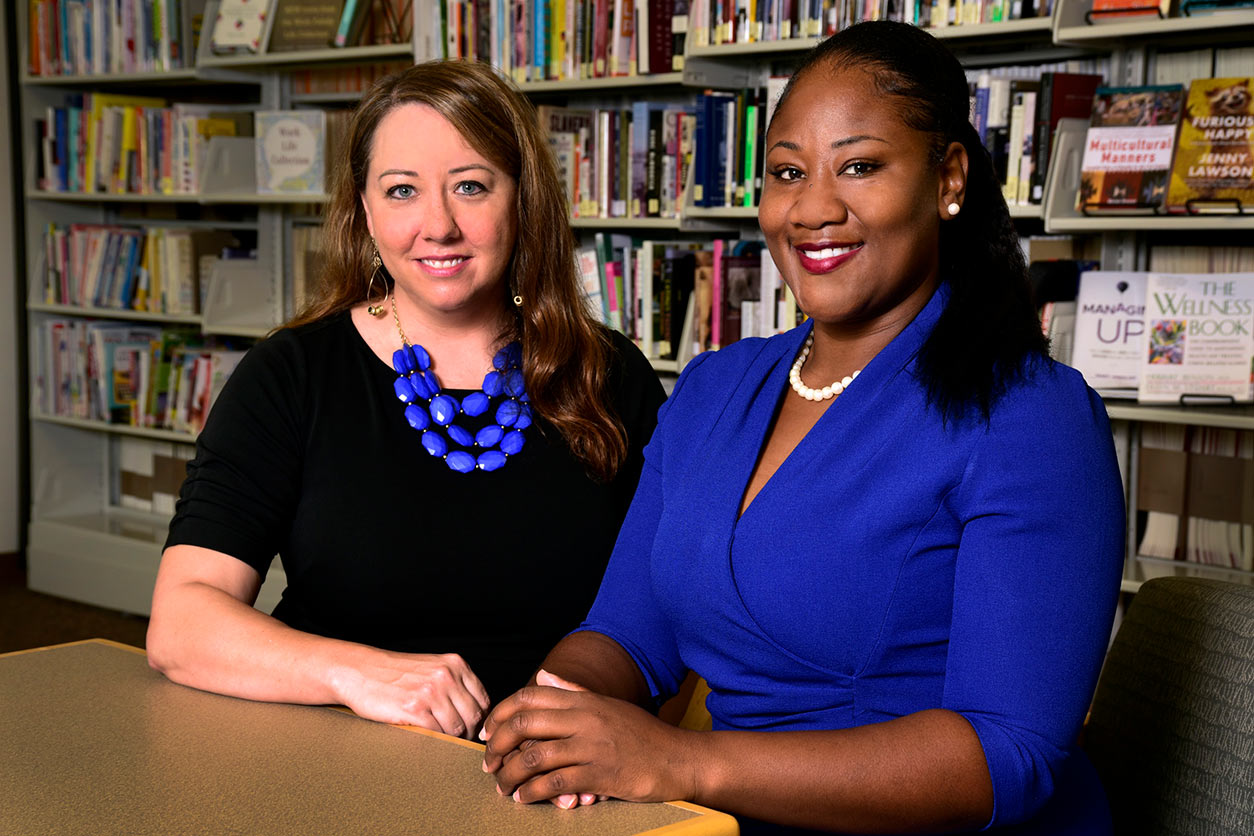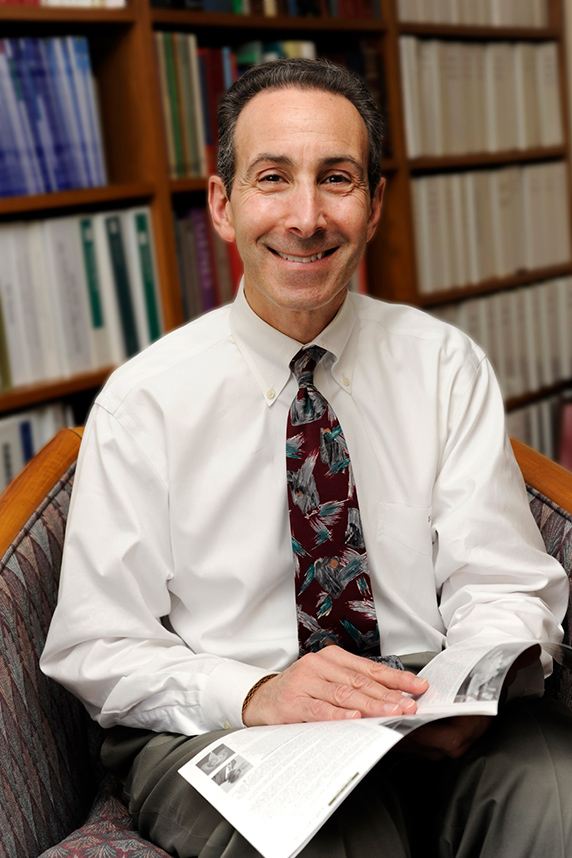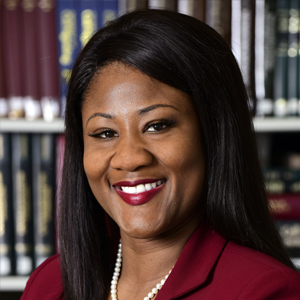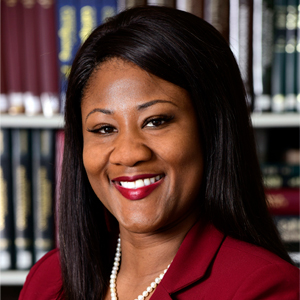Two NIEHS scientists, Chandra Jackson, Ph.D., and Jennifer Martinez, Ph.D., are recipients of the Presidential Early Career Award for Scientists and Engineers (PECASE).
The PECASE is the highest honor bestowed by the United States government to outstanding scientists and engineers who are beginning their careers and show exceptional promise for leadership in science and technology.
 The different types of research that Martinez, left, and Jackson conduct reflect the breadth of NIEHS studies and of PECASE recipients. (Photo courtesy of Steve McCaw)
The different types of research that Martinez, left, and Jackson conduct reflect the breadth of NIEHS studies and of PECASE recipients. (Photo courtesy of Steve McCaw)“Chandra and Jennifer are both leaders in their fields, and we are fortunate to have them conducting research at NIEHS,” said NIEHS Scientific Director Darryl Zeldin, M.D. “They were each heavily recruited by other prestigious research organizations and universities but chose to join our institute.”
Jackson — environment and sleep
Jackson joined the NIEHS Epidemiology Branch in 2017. She directs a research program that investigates how physical and social environments affect sleep and lead to preventable health disparities.
 Zeldin said the nominations faced stiff competition as they were evaluated at successively higher levels. “PECASE nominations ultimately reflect the hard work of each candidate,” he said. (Photo courtesy of Steve McCaw)
Zeldin said the nominations faced stiff competition as they were evaluated at successively higher levels. “PECASE nominations ultimately reflect the hard work of each candidate,” he said. (Photo courtesy of Steve McCaw)“Considering poor sleep a potential fundamental, understudied contributor to suboptimal health, my research looks at the determinants of poor sleep and its influence on cardiometabolic dysfunction, such as diabetes, heart disease, and stroke,” said Jackson. “Poor sleep likely contributes to a host of chronic diseases and health disparities.”
Jackson’s sleep-related research was inspired by her everyday life experiences within resource-rich and resource-poor settings and communities.
“I’m a first-generation college graduate who grew up knowing the first person in my family born free from American slavery,” said Jackson. “Insight from my personal experiences contributes to some of my most interesting research questions, to date.”
“I’m sometimes astonished that I’ve worked with — either formally or informally — and been inspired by such a wide array of people, ranging from those who have been marginalized with low opportunity to those with some of the greatest scientific achievements, including Nobel laureates and members of the National Academy of Medicine,” she added.
“Chandra is a big-picture thinker who brings a broad social science framework to her focus on sleep, metabolic dysfunction, and health disparities,” said Dale Sandler, Ph.D., head of the NIEHS Epidemiology Branch. “She is driven to understand how the social environment and biology interact and lead to specific health outcomes, and to identify future opportunities to reduce health disparities.”
“I hope younger women and members of racial or ethnic minority groups see, with this award, that it’s entirely possible for underrepresented people to pursue their dreams and excel with adequate support,” said Jackson.
Martinez — damaged cells and inflammation
Martinez joined NIEHS in 2015 and now heads the Inflammation and Autoimmunity Group within the Immunity, Inflammation, and Disease Laboratory (IIDL).
Her lab studies the effects of environmental factors on autophagy, which is the body’s way of removing damaged cells and replacing them with new ones. Autophagy is crucial for good health. If this process is defective, cellular inflammation and disease can result.
Integral to her work is understanding how the body’s immune system, or ability to resist disease, handles autophagy along with inflammation. Martinez hopes to gain insight into novel approaches for treating disease.
“I began working on autophagy and the immune response as a postdoctoral fellow at St. Jude Children’s Research Hospital,” said Martinez. “I was inspired to learn more about this critical cellular processing pathway and how it affects our immune system’s reactions to environmental threats.”
“We’ve learned that a particular form of autophagy can be both beneficial — such as preventing autoimmunity — and harmful, such as making a cancer therapy less effective,” she added.
“Jennifer brings a blend of raw scientific excitement and smarts that together make her an outstanding scientist and an emerging leader in this new field,” said Michael Fessler, M.D., who leads IIDL. “Her PECASE award is a huge feather in the cap for our intramural immunology-inflammation program at NIEHS — an already strong program that we will further expand and enrich.”
“I hope this award opens opportunity for new research collaborations, but more importantly, I hope it inspires young women to look at a career in research and say, ‘I belong there, too’,” said Martinez.
(Carol Kelly is managing editor in the NIEHS Office of Communications and Public Liaison.)









